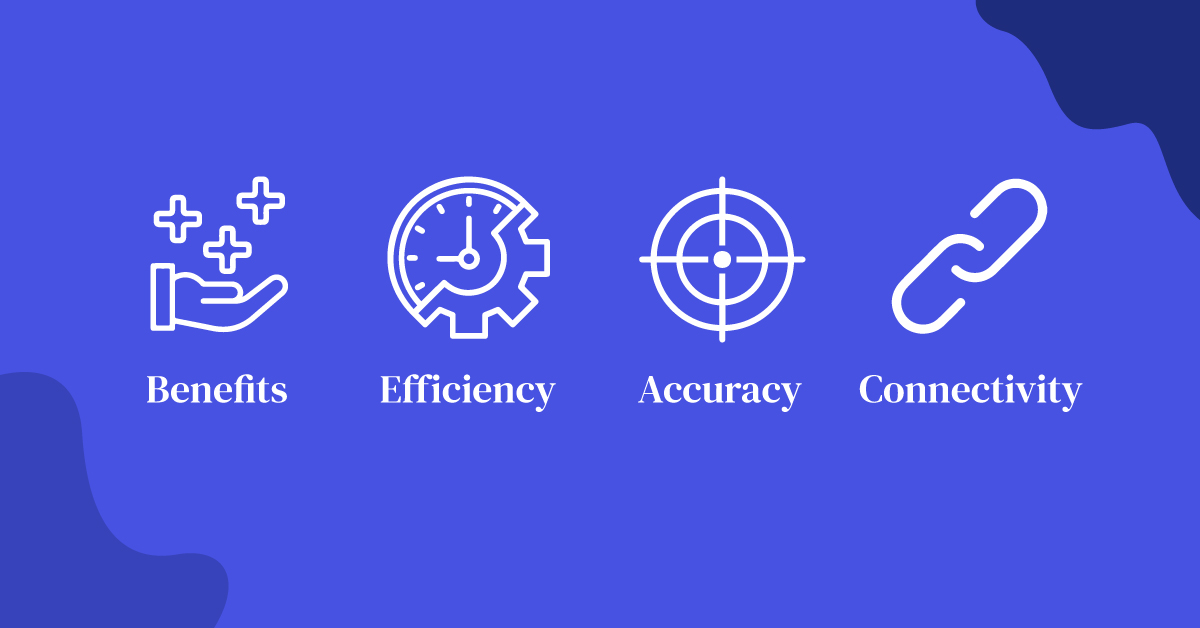Everything You Need To Know About Insurance ACORD Forms
Subscribe to our Blog
In the insurance world, thousands of agencies must communicate by sharing data. But without a way to standardize communication of insurance information, there’s a significant risk of miscommunication about customer needs and policy coverage. Enter ACORD forms.
In this article, we'll walk you through exactly what ACORD forms are and answer all your questions about this universal data-sharing system.
What Is the Association for Operations Research and Development?
The Association for Cooperative Operations Research and Development (ACORD) is a non-profit standards development organization serving the global insurance industry.
With over 140 member organizations spanning 16 countries, ACORD members include insurance and reinsurance companies, agents and brokers, software providers, financial services organizations and other industry associations.
ACORD’s widely adopted frameworks, XML schemas and forms pave the way for seamless data exchange across the insurance ecosystem. Their standardized forms and reference architecture have increased workflow efficiency and drastically improved the customer experience by allowing fast, accurate policy and claims data transfer.
What Are ACORD Forms?

While most firms rely on in-house systems, their proprietary documents don’t always translate to other platforms. ACORD forms fix this issue. 90% of agencies use these forms to allow policy and claims data to flow between different management software and organizations.
Consider ACORD forms as insurance interpreters, decoding critical customer information for agents worldwide in an accessible format that can be easily uploaded to any insurance agency management software.
How Do ACORD Forms Work?
ACORD forms act as passports, ensuring key policyholder details appear in standardized locations regardless of company, country or language. This simplifies transferring, accessing and comprehending data globally.
Modern agency software auto-populates ACORD form data into customizable documents, further expediting workflows. Quick information exchange facilitates everything from new policy setups to mid-term changes and claims processing.
Types of ACORD Insurance Forms
With a list of over 800 forms ranging from documenting car accident information to providing proof of terrorism insurance, there are ACORD forms for everything, each designed for specific purposes. Some common types include:
- ACORD 25: Certificate of Insurance
- ACORD 126: Commercial General Liability Section
- ACORD 130: Workers' Compensation Application
- ACORD 140: Property Section
- ACORD 160: Business Auto Section
- ACORD 175: Commercial Insurance Application
- ACORD 801: Commercial Insurance Instruction Guide
The Association for Operations Research and Development's expansive ACORD form list ensures that customers are matched with forms specific to their unique policy so that key information doesn’t get lost.
Benefits of ACORD Forms

ACORD forms provide common ground and remove communication barriers to offer clarity in an industry with a need for efficient solutions. Here’s a closer look at their main benefits:
- Efficiency: ACORD forms streamline communication and data exchange, reducing the time and effort required for manual processing.
- Accuracy: Standardization minimizes errors and inconsistencies in data, promoting accurate underwriting, policy issuance and claims handling.
- Connectivity: Since ACORD forms are widely adopted, they promote interoperability among different systems and organizations in the insurance industry.
ACORD Forms and Regulatory Compliance
ACORD forms are critical in enabling regulatory compliance in the insurance industry. These standardized forms align closely with legal frameworks across multiple jurisdictions. They promote transparent and accurate data sharing per oversight requirements, strengthening transaction integrity.
ACORD forms also allow for comprehensive documentation necessary for audits. Moreover, ACORD continually adapts forms to reflect changes in evolving regulations.
Additionally, the unified structure facilitates cross-border insurance deals. It provides a common ground across diverse regulatory regimes. ACORD forms also simplify regulatory reporting processes for insurance providers.
Responsible ACORD Form Practices
While ACORD forms are incredibly useful during the initial data transfer process and help in confirming coverage, they can cause a lot of trouble and needless headaches if they’re misused. A careless mistake can mean clients losing their coverage.
Here are some best practices to follow when using ACORD forms:
- Stay Informed: Keep abreast of the latest ACORD form versions and update systems regularly to align with any changes.
- Prioritize Data Security: Implement robust measures to protect sensitive information.
- Complete and Accurate Information: Ensure all required fields on ACORD forms are appropriately filled.
- Training and Awareness: Foster a culture of training to enhance team members' familiarity with ACORD forms.
The Best AMS for Managing ACORD Forms
Data integrity and system interoperability are paramount as customer expectations and technological capabilities continue evolving. ACORD forms provide the common language needed to drive efficiency and innovation across insurance markets worldwide.
Eclipse’s automated workflows integrate ACORD form data into customizable documents and accelerate policy lifecycles. Rule-based features reduce administrative overhead, while real-time data analytics provide visibility across client accounts.
For more information on how to increase the productivity and efficiency of your insurance agency, contact NASA and learn how to make your insurance software work for you.
Topics: Software Features | Independent Insurance Agency | Insurance Industry | Insurance Software

